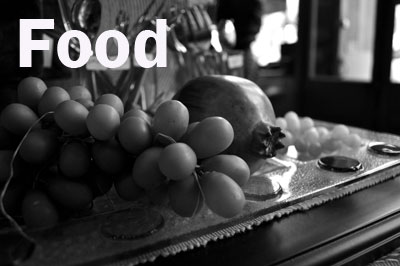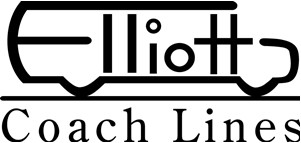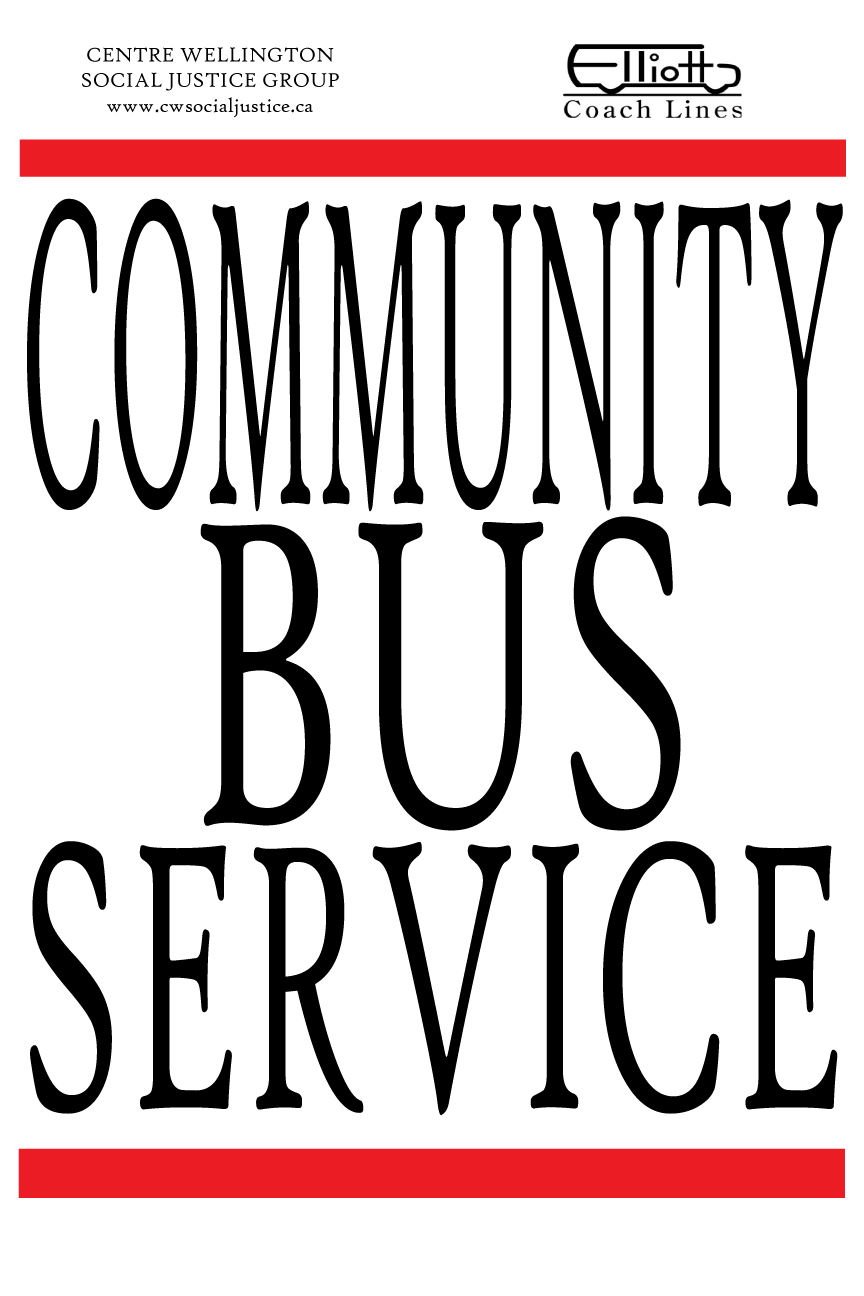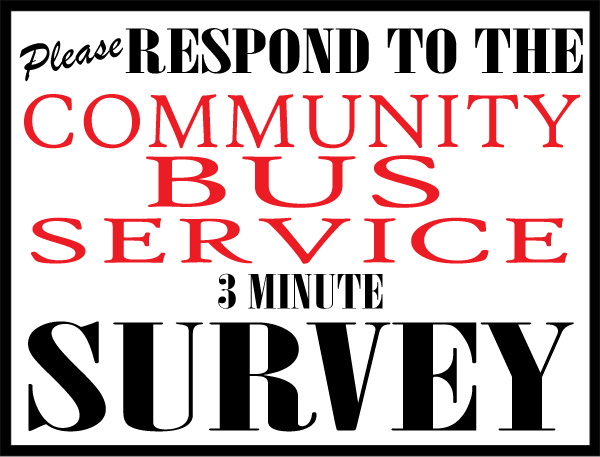Community Bus Service

|
 
|

|

|

|
Through a series of community discussions in 2012 and 2013, we identified 3 areas that we could work on in addition to continuing to gather and disseminate information about poverty in our community. The 3 areas are: transportation, food and food security and housing.
Transportation is a significant problem for those living in poverty because not being able to get around affordably means people are cut off from participating in the great events and programs in our community, they don’t have the same ability to get to shop when and where is the best for them, and they have difficulty finding and getting to work.

|
In March 2013, we met with Elliott Coach Lines to get their advice on starting some sort of transportation system in Centre Wellington. They said they would be willing to help us out as a community service, by providing bus routes around town at no profit to themselves – they would like to recover the cost of gas and the driver. |
|
With this mind, we held two public meetings later in March – one at the Fergus Legion and one at the Elora Legion. What we heard is that in addition to people with low income, other people without access to cars – seniors who can’t or don’t want to drive, and students – would like to use a bus service as well. We tailored the routes as much as possible to the three groups of potential users, and, together with Elliott, decided the best way to get going, was simply to get going, learning as we went along. On June 19, the first bus ran a route around the township. Elliotts had agreed to a 3-month trial, and September, offered to extend that to Feb 1.
|

 |
Our plan was not to have the service run on the basis of collected fares only. No transit system like this runs that way, and similar services in Canada and the US typically supplement fares with government subsidies and advertising and sponsorships. We heard back in March from Councillor Morris that it was unlikely that we would get a continuing subsidy from the township because of the priority on bridges, and so we decided to focus on sponsorships from local businesses.
We thought this was a viable option because very soon after starting the service, two businesses told us they would be interested in a stop by them, and a real estate agent offered to supply benches for the bus stops. We asked township staff for guidance on placing the benches, and they discouraged us from installing them until the bus service was confirmed as a continuing venture. We also heard from the social services office, the food bank and the Community Resource Centre, and they bought tickets to distribute to their clients. Wellington Terrace also took some tickets to help visitors get to the Terrace. We also had an inquiry for tickets from Wellington-Dufferin-Guelph Public Health for their clients.

|
In September, we had an online survey that helped us refine the bus routes and schedules. We also did some additional research into the marketing strategies of rural bus services in Canada and the US. But the key fact that we got from all the research is that the best way to increase riders is by word of mouth – one rider tells others about the service, and some of them try it and like it, and they tell others, and so on. This means that ridership grows more slowly than we would probably want, but it’s what others’ experience tells us. We can wish it were different, but it seems to be the case here. |
In October, we planned our major outreach to businesses in the community, and in the middle of November we delivered 200 letters to businesses letting them know about the opportunities for sponsorship. We have already had enthusiastic uptake from several businesses, and had pledges for $6,000 by the first week of December, with reasonable prospects for all that we require over a year. We’ve had pledges for $1000, $500 and $250 from a variety of businesses – including health care providers, pharmacies, and restaurant and grocery store owners. We structured the opportunities for businesses to get involved means that the businesses will be able to help us – as destinations on the bus route – to attract riders.
In early December, we heard from Elliott’s, though, and as they totalled up what they had contributed in gas and payments to drivers, and it was about $15,000 more than the fares they had collected over the 6½ months of operation. They decided that they could not bear additional costs going forward, and that the last day of service they would be providing was Dec 14. Coming half way through our outreach to businesses, this was unwelcome news, though we totally understand Elliott’s perspective. They have stepped up to serve the community and they hadn’t, as of the time they made their decision, seen evidence that anyone else in the community was stepping up.

